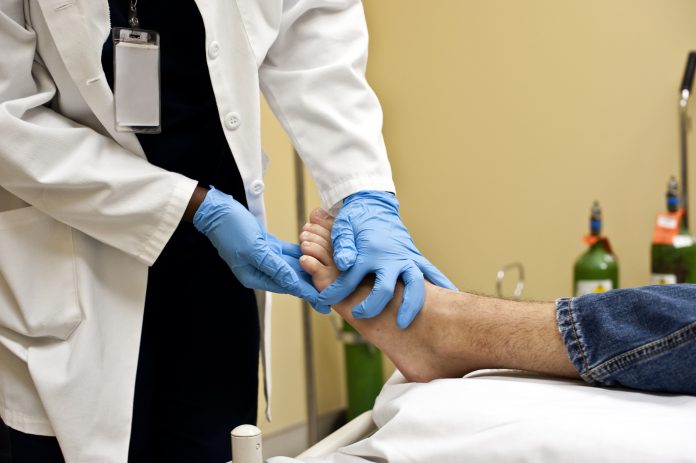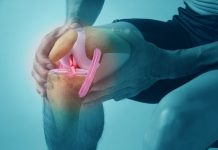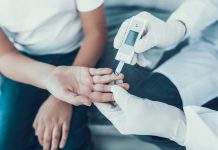Chronic wounds present a huge social and economic burden; Consultant Podiatrist Debbie Sharman shares the importance of the Legs Matter coalition, which includes various healthcare charities dedicated to improving care for individuals with diabetic foot problems and other lower limb conditions
Operating under the governance of the Tissue Viability Society, Legs Matter is a coalition of eight healthcare charities and not-for-profit organisations (Accelerate, The British Lymphology Society, The Royal College of Podiatry, Foot in Diabetes UK, Leg Ulcer Forum, Lindsay Leg Club Foundation, Society for Vascular Nurses and Tissue Viability Society).
Foot in Diabetes UK (FDUK), one of the coalition members, is a multidisciplinary group with over 2,000 members. It is an organisation dedicated to continuous improvement in the care and management of people with diabetic foot problems. FDUK aims to support healthcare professionals in delivering high-quality, clinically effective care to improve the lives of people with diabetic foot problems.
The Legs Matter coalition believes:
- Non-healing wounds of the leg and foot are one of the biggest health challenges of our time, but it is a challenge that can be solved;
- Everyone has a right to good-quality lower leg and foot care that promotes healing and reduces the risk of harm;
- There is a need to improve awareness, understanding and treatment of lower leg and foot conditions; and
- We can achieve more by working together than we can by working alone.
Someone with a lower leg or foot condition will encounter a number of people along their journey to diagnosis and treatment, from the pharmacist to the community nurse or podiatrist to the GP and beyond. The Legs Matter coalition exists to try and ensure that every single person on that journey, including the patients themselves, has the information they need to take the next best step towards healthy, pain-free legs and feet.
Non-healing wounds of the leg and foot are one of the UK’s biggest health challenges. Despite this, conditions of the leg and foot do not currently receive the care or attention they urgently need. Every day, thousands of people’s quality of life is devastated by the lack of awareness, prompt diagnosis and correct treatment of lower leg and foot conditions.
This can and must change.
The cost of care
A recent research study estimated that 3.8 million people in the UK have a wound that needs to be managed by the NHS – 7% of the adult population and a 71% increase from 2012/2013. The total annual NHS cost of wound management is £8.3 billion – an increase of 48% in real terms from 2012/2013. That is almost as much as the combined cost of managing osteo- and rheumatoid arthritis conditions (£10.2bn). Over 40% of these wounds are leg and foot ulcers (Guest et al., 2015). Diabetes-related foot ulceration alone costs the NHS around £1bn per year (Kerr, 2017).
Leg ulcers are at least four times more common than pressure ulcers, and care is too often inappropriate or too slow. (Guest et al. 2015).
Much can be done to heal wounds on the lower legs and feet, but frontline clinicians such as GPs, nurses and pharmacists may not be aware of the most appropriate prevention and treatment options.
The Legs Matter Awareness Week campaign first ran in 2019, aiming to signpost people living with chronic lower limb wounds, or those caring for them, to the information and services that can help them get the care they need. Whilst the overall response to the awareness week was overwhelmingly positive, it also gave rise to an alarming number of questions and concerns from the public. These highlighted issues of poor public awareness about the seriousness of minor skin breaks, inflammation or swellings, and delays in seeking help. Some also reported poor assessments, delays in effective treatment initiation (especially appropriate compression), inadequate pain relief, support and advice, and persistence with ineffective treatments (Sneddon, 2019). This feedback reinforced the need for the Legs Matter Campaign to go on.
In terms of moving forward, we cannot afford to be complacent. The economic and social burdens of chronic wounds continue to increase. Collaboration is starting to see changes, and the Wound Care Strategy Programme (NWCS 2020) suggest that implementing the NWCSP Lower Limb Recommendations will significantly reduce leg ulcer prevalence and the cost of leg ulcer care. Implementation will also reduce the time clinicians spend delivering wound care and the costs of drug prescriptions, hospital admissions and wound care products. While these results should interest healthcare providers and commissioning organisations, implementing the recommendations will also improve patients’ quality of life, morale, and job satisfaction for clinicians (Adderley, 2020).
The Legs Matter coalition consensus document ‘Making Legs Matter: A Case for System Change and Transformation in Lower-Limb Management’ (Atkin et al., 2021) will further support the case for wholesale change. It is a hard-hitting document, and the coalition makes no apologies for this. It is hoped that this document will enable us all to play our part in driving change and truly transforming the status quo. Make sure it is your next read!
References
- Adderley U (2020). National Wound Care Strategy Programme. Wounds UK, 16 (4); 16.
- Atkin L, Hopkins A, Gardner S, Elwell R, O’Connor C, Sneddon M, Chadwick P, Wiles K, Williams K, Bullock L, Goodwin T. (2021) Making Legs Matter: A case for system change and transformation in lower-limb management. In Print
- Briggs M & Flemming K (2007). Living with leg ulceration: a synthesis of qualitative research. Journal of Advanced Nursing, 319-328.
- Guest JF, Fuller GW, Vowden P (2020). Cohort study evaluating the burden of wounds to the UK’s National Health Service in 2017/2018: update from 2012/2013 BMJ Open 2020;10:e045253. doi: 10.1136/bmjopen-2020-045253
- Kerr M (2017). Diabetic Foot Care in England: An Economic Study. Diabetes UK
- National Wound Care Strategy Programme (NWCSP) (2020) Lower Limb Recommendations. (accessed 20 October 2020)
- Sneddon M 2019 Legs Matter Awareness Week: Why it’s important. Wounds UK, 15 (4), 14.








